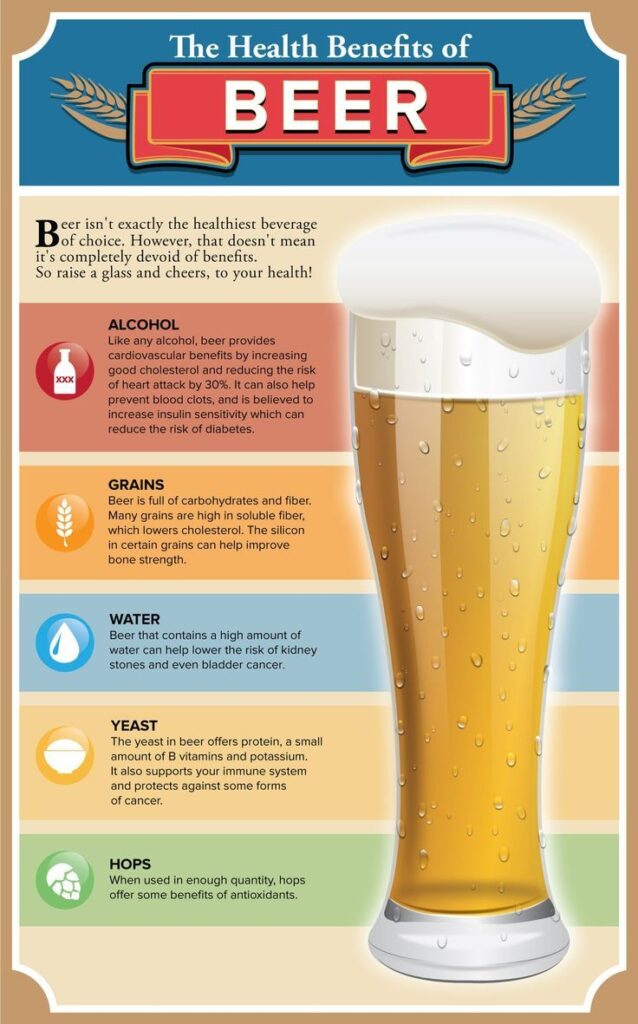Unlock the secrets of alcohol tolerance with this revealing look at the factors influencing your ability to hold your beer.
Table of Contents
Have you ever found yourself wondering how many beers it takes to get drunk? The answer is not as simple as you might think. Alcohol intoxication is influenced by a variety of factors, from individual tolerance levels to the science behind alcohol metabolism. In this comprehensive blog post, we will delve deep into the intriguing question of alcohol consumption and explore the factors that determine how many beers you can handle before feeling intoxicated.
The Science Behind Alcohol Metabolism
alcohol metabolism plays a crucial role in determining how quickly you feel the effects of alcohol. When you consume alcohol, your body begins to break it down through a process called metabolism. Alcohol is primarily metabolized in the liver, where enzymes work to convert it into acetaldehyde, a toxic substance that is further broken down into harmless byproducts.
Various factors can influence the rate of alcohol metabolism, including body weight, gender, and metabolism rate. Generally, individuals with higher body weight tend to metabolize alcohol more efficiently than those with lower body weight. Additionally, men typically have a higher metabolism rate for alcohol compared to women. These differences in metabolism can impact how quickly you feel the effects of alcohol and how long it stays in your system.
Individual Tolerance Levels
One of the key factors that determine how many beers you can handle before getting drunk is your individual tolerance level. Tolerance to alcohol is influenced by a variety of factors, including genetics, drinking habits, and overall health. Individuals who regularly consume alcohol may develop a higher tolerance level compared to occasional or first-time drinkers.
Experienced drinkers often have a better ability to handle larger amounts of alcohol without feeling as intoxicated. However, it is important to note that tolerance levels can vary greatly from person to person. Factors such as age, liver health, and even mood can impact how your body responds to alcohol and how quickly you reach a state of intoxication.
Factors Influencing Intoxication
In addition to alcohol metabolism and individual tolerance levels, there are several other factors that can influence how quickly you get drunk from consuming beers. The type of alcohol consumed, the rate of consumption, and whether you have eaten recently can all play a role in determining your level of intoxication.

Image courtesy of thebeerthrillers.com via Google Images
For example, consuming high-proof spirits may lead to quicker intoxication compared to drinking beer due to the higher alcohol content. Mixing different types of alcohol can also affect how your body processes alcohol, potentially leading to increased intoxication. Additionally, drinking on an empty stomach can result in faster absorption of alcohol into the bloodstream, whereas having food in your stomach can slow down the rate of alcohol absorption.
Conclusion
While there is no definitive answer to the question of how many beers it takes to get drunk, it is clear that alcohol intoxication is a complex process influenced by a variety of factors. Understanding the science behind alcohol metabolism, individual tolerance levels, and the various factors that influence intoxication is crucial for making informed decisions about alcohol consumption.
Ultimately, the key to responsible drinking lies in knowing your limits and prioritizing your safety. By being aware of the factors that determine how many beers you can handle before getting drunk, you can make informed choices about alcohol consumption and mitigate the risks associated with excessive drinking.
FAQs
How does body weight affect alcohol tolerance?
Answer 1: Body weight can impact alcohol tolerance as individuals with higher body weight tend to metabolize alcohol more efficiently, leading to a higher tolerance level compared to those with lower body weight.
Why do men generally have a higher tolerance for alcohol than women?
Answer 2: Men typically have a higher metabolism rate for alcohol compared to women, which allows them to process alcohol more quickly and can contribute to a higher tolerance level.
How does eating before drinking alcohol affect intoxication levels?
Answer 3: Eating before consuming alcohol can slow down the rate of alcohol absorption into the bloodstream, which may help reduce intoxication levels compared to drinking on an empty stomach.
What factors can contribute to quicker intoxication when consuming alcohol?
Answer 4: Factors such as consuming high-proof spirits, mixing different types of alcohol, and drinking on an empty stomach can all contribute to faster intoxication levels when consuming alcohol.
Generated by Texta.ai Blog Automation


Leave a Reply